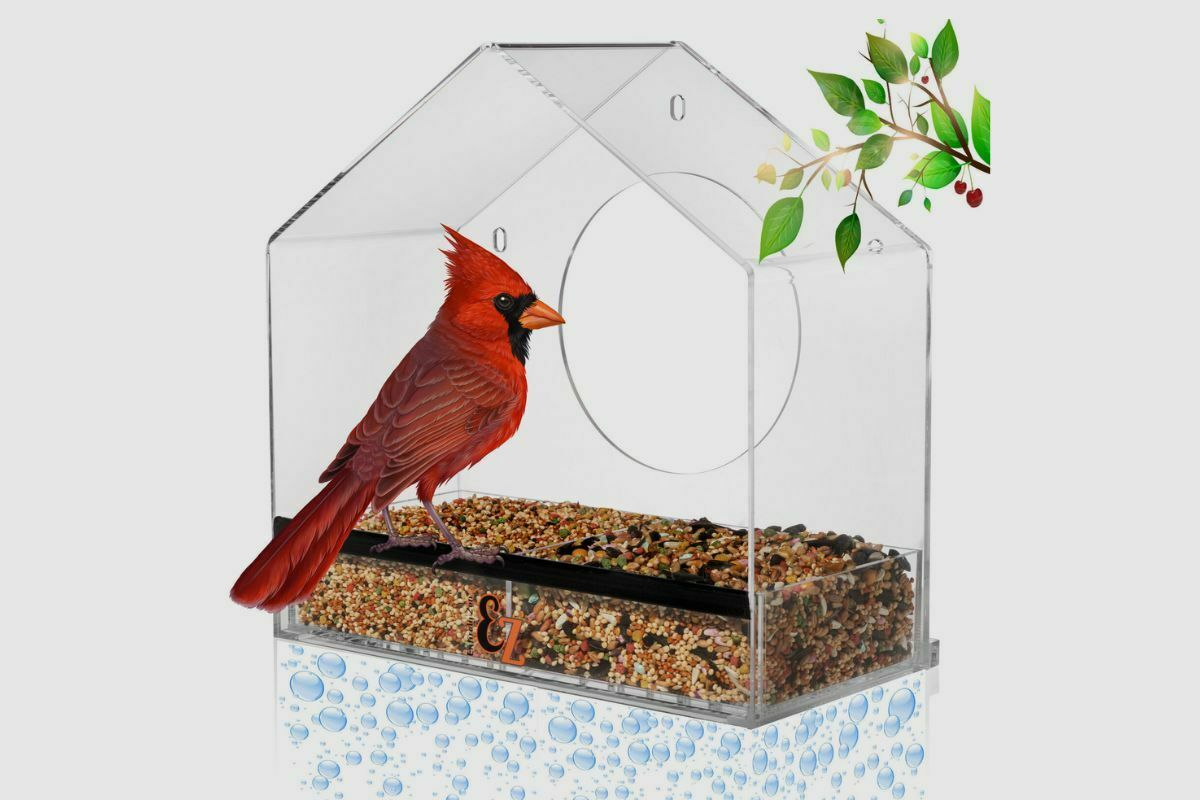Window bird feeders have their benefits, but they also come with potential issues that need to be addressed. One major concern is the risk of bird collisions with windows, which can result in injuries or even death. Additionally, these feeders can attract rodents and other pests, causing problems for homeowners. There is also the possibility of disease transmission between birds and humans through the feeders.
To enjoy the advantages of a window bird feeder while minimizing the drawbacks, it is important to take certain precautions. Here are some tips to consider:
- Thoughtful positioning: Place the feeder either very close (within 3 feet) or at least 10-15 feet away from the window to reduce the chances of bird collisions.
- Keep the area clean: Regularly clean the feeder and the surrounding area to prevent the spread of diseases and discourage pests.
- Use anti-collision decals or window films: Apply these products to your windows to help birds recognize the barrier and avoid collisions.
- Select the right feed: Provide high-quality bird feed to attract desired bird species and minimize the potential for disease transmission.
- Monitor the feeder: Keep an eye on the feeder for any signs of disease or pest infestations and take action accordingly.
By following these measures, you can enjoy the benefits of a window bird feeder while minimizing the potential risks.
Benefits of Window Bird Feeders:
- Close-up observation: Window bird feeders allow for a detailed view of bird behavior, plumage, and feeding habits, fostering a deeper appreciation for nature and wildlife.
- Stress relief: Watching birds at your window feeder can help reduce stress and anxiety, providing a moment of respite from everyday life.
- Support local bird populations: By providing a reliable food source, you directly support local bird populations, especially during harsh weather conditions or food scarcity.
- Educational opportunities: Window bird feeders serve as excellent educational tools, teaching about different bird species and their roles in the ecosystem.
- Attract a variety of bird species: With a window bird feeder, you can attract a diverse range of bird species, enhancing the birdwatching experience.
- Eco-friendly entertainment: Birdwatching has a minimal environmental impact, making it a responsible choice for nature enthusiasts.
Possible Hazards for Birds Associated with Window Bird Feeders:
- Window collisions: Birds may collide with windows while attempting to access the feeder, resulting in injuries or fatalities. Positioning the feeder closer or further away from the window can mitigate this risk.
- Disease transmission: If not cleaned regularly, feeders can become breeding grounds for bacteria and parasites, leading to the spread of diseases among bird populations. Regular cleaning and removal of spoiled food can minimize this risk.
- Attraction of pests: Window bird feeders may attract rodents or other pests due to spills or excess food. Cleaning up spilt food and avoiding overfeeding can address this issue.
- Predators: Window bird feeders may expose birds to potential predators, such as cats. Positioning the feeder in a predator-resistant location can help protect the birds.
- Human interference: Birds may become dependent on window feeders, making them vulnerable to human disturbances or changes in feeding routines. Maintaining a consistent feeding schedule can reduce this risk.
Tips for Making Window Bird Feeders Safer for Birds:
- Provide a variety of foods to cater to different bird species’ dietary needs.
- Use squirrel-proof feeders to prevent squirrels from stealing bird food.
- Offer natural perching options, such as branches or shrubs, for birds to rest or escape from predators.
- Avoid placing feeders near reflective surfaces to reduce the risk of bird collisions.
- Monitor bird activity and seek professional advice if you notice signs of disease or distress.
Window bird feeders can be enjoyed while ensuring the safety and well-being of the birds. By implementing the mentioned safety tips and precautions, you can create a safer environment for the birds and continue to enjoy the benefits of window bird feeders.
